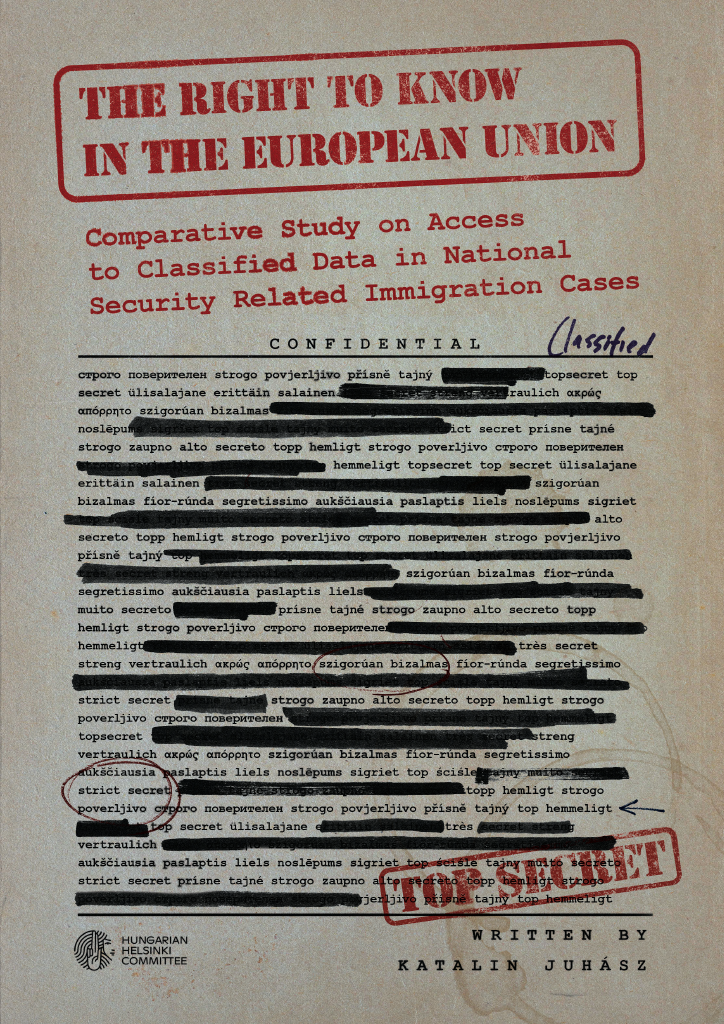
Clear Principles, Divergent Practices: The Right to Know in National Security Related Immigration Matters in EU Member States
A comprehensive research study on how the issue of applicants’ right to know and to access classified information is regulated in immigration-related proceedings in the Member States of the European Union, and whether national frameworks are in line with European standards was published earlier in 2024 by the Hungarian Helsinki Committee. The study identified a number of breaches of these standards, which are now specifically highlighted in a policy brief, primarily with the purpose of drawing the European Committee’s attention to these breaches and the need to monitor compliance issues in this area.
A foreign national who is deemed to be a threat to national security is not granted the right to enter or reside in any EU Member State (MS). The Court of Justice of the European Union (CJEU) and the European Court of Human Rights (ECtHR) have clearly stated that foreign applicants are to know the essence of the grounds (substance) of reasons for which they are regarded as such a threat. However, in numerous EU countries these reasons remain fully or partially undisclosed before the applicant, with reference to the fact that the reasons are based on classified data.
The Hungarian Helsinki Committee (HHC) published a comparative pan-European mapping study on the issue of how applicants’ rights to access classified information are regulated in the Member States of the European Union, and whether national frameworks are compliant with the standards set out by the said courts. A clear breach of these standards has been identified in a third of the researched countries: in these MSs the essence of the grounds of the reasons is not provided to the applicant, moreover, there is no procedure established through which access may be gained to information substantiating the allegation of a national security threat. In some of those countries where there is such an access procedure, national security considerations overshadow the exercise of individual rights.
National practice may be regarded particularly concerning in those MSs where data may be revealed only if declassified, and yet national courts have no authority to review the lawfulness of classification. Non-compliance is often due to the fact that judicial supervision, within which judges may access classified data, is seen as a substitute for the access rights of the applicant. Apart from foreigners not being able to defend themselves, they may not be able to correct potentially erroneous information, which may all hinder comprehensive and impartial case examination. As these non-compliance issues have been identified in a large number of MSs and on a wide scale, it would be essential for the Commission to monitor and follow up these breaches. This is all the more timely if the EU Pact on Migration and Asylum is to be implemented in the light of the standards already established by the Courts in existing case law.
This policy brief is based on the above mentioned pan-European mapping study of the HHC. The study and the policy brief were written in the framework of ‘The Right to Know 2’ project funded by the European Philanthropic Initiative and Migration (EPIM).
Please find the policy brief here
You can read the comparative mapping study here